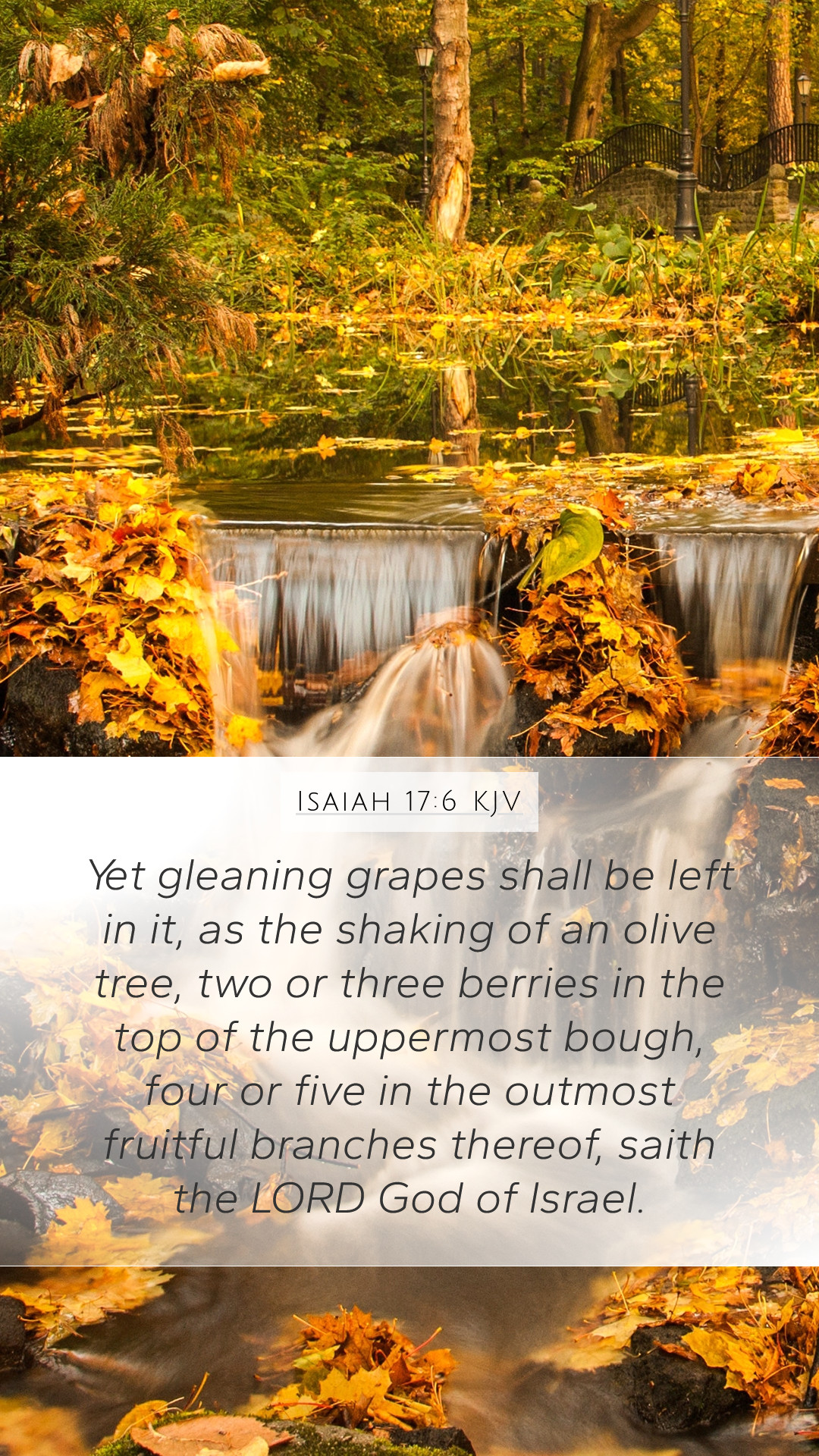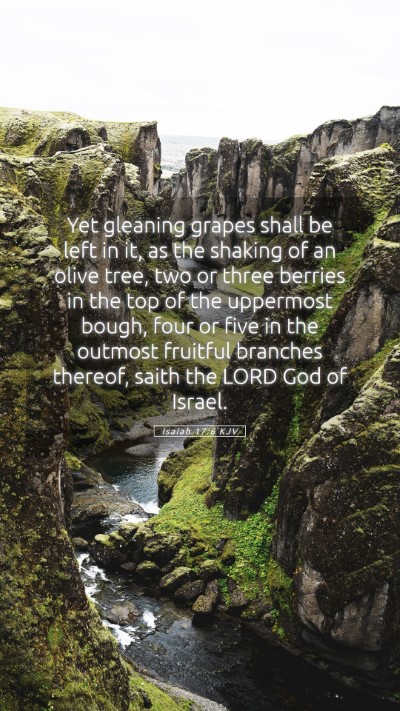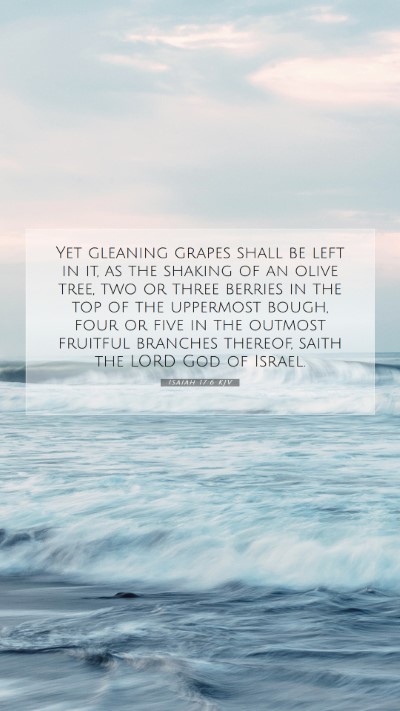Understanding Isaiah 17:6
Isaiah 17:6 states: "Yet gleaning grapes will be left in it, like the shaking of an olive tree—two or three olives at the top of the bough, four or five on its fruitful branches," declares the Lord, the God of Israel.
This verse signifies a remnant of hope amidst destruction, illustrating God's mercy and covenantal faithfulness. The interpretation and meaning of this verse can be derived from multiple public domain commentaries, offering a comprehensive understanding of its implications.
Bible Verse Meanings and Interpretations
In this portion of Scripture, the prophet Isaiah describes the desolation of Damascus and the surrounding regions as a divine judgment. However, amidst this devastation, the mention of gleaning grapes and olives highlights God's grace and the preservation of a remnant.
Commentary Insights
-
Matthew Henry Commentary:
Matthew Henry notes that the "gleaning grapes" represent those who will be spared in a time of great calamity. Just as farmers leave some grapes for the poor, God makes provisions for His people even in times of judgment.
-
Albert Barnes Commentary:
Barnes emphasizes the periodic destruction of Israel yet concludes that God's promise ensures that a few—those "two or three"—will survive. This indicates God's sovereignty and His ability to preserve His people through trials.
-
Adam Clarke Commentary:
Clarke points to the agricultural imagery used by Isaiah, reminding readers that even when destruction seems complete, there is a creative force that preserves life. He notes that the few olives symbolize hope for a future restoration of Israel.
Key Themes in Isaiah 17:6
-
Remnant Theology:
This verse serves as a precedent in Scripture demonstrating that God always preserves a remnant of His people, even in dire circumstances, facilitating a future hope and restoration.
-
Divine Judgment and Mercy:
Isaiah's prophecy represents the duality of God's nature: He is just in punishment yet infinitely merciful, ensuring that even amidst wrath, a path of hope remains available for believers.
-
Symbolism of Agriculture:
The use of agricultural symbols like gleaning grapes and olives represents abundance and sustenance. These images reflect God's nurturing aspect, despite the surrounding devastation.
Biblical Exegesis and Analysis
The historical context of Isaiah's message reveals the impending threats faced by Israel, linking to broader themes of covenant unfaithfulness and divine retribution. Yet, Isaiah's prophetic voice continually redirects attention to the hope present for those who are faithful to God.
Application of Isaiah 17:6 to Daily Life
- Finding Hope in Adversity: Just as Isaiah highlighted the remnants of olives and grapes, believers today can find hope and strength in the small blessings during challenging times.
- Recognizing God’s Provision: Understanding that even in moments of trial, God's provision remains evident is vital for encouraging faith and perseverance.
- Encouraging Resilience: Isaiah's reminder of a remnant encourages believers to remain steadfast, trusting in God's promises of restoration and renewal.
Cross References
- Isaiah 10:20-22: Discusses the remnant of Israel who will rely on God.
- Romans 11:5: Paul speaks of a remnant chosen by grace.
- Micah 7:1-2: Mentions a similar theme regarding the fate of Israel and preservation.


